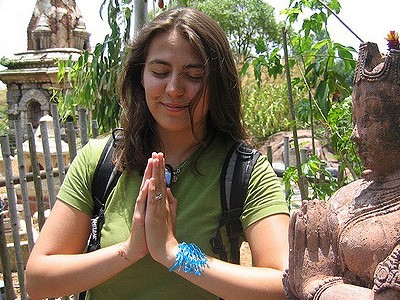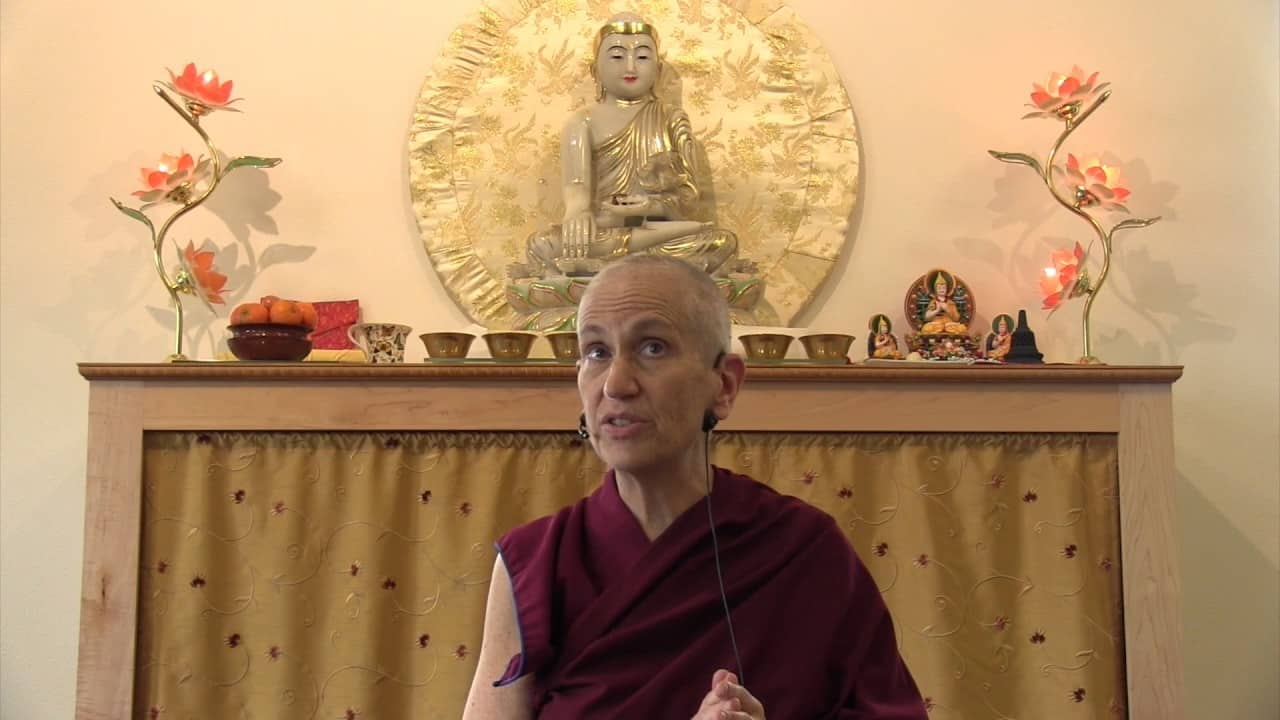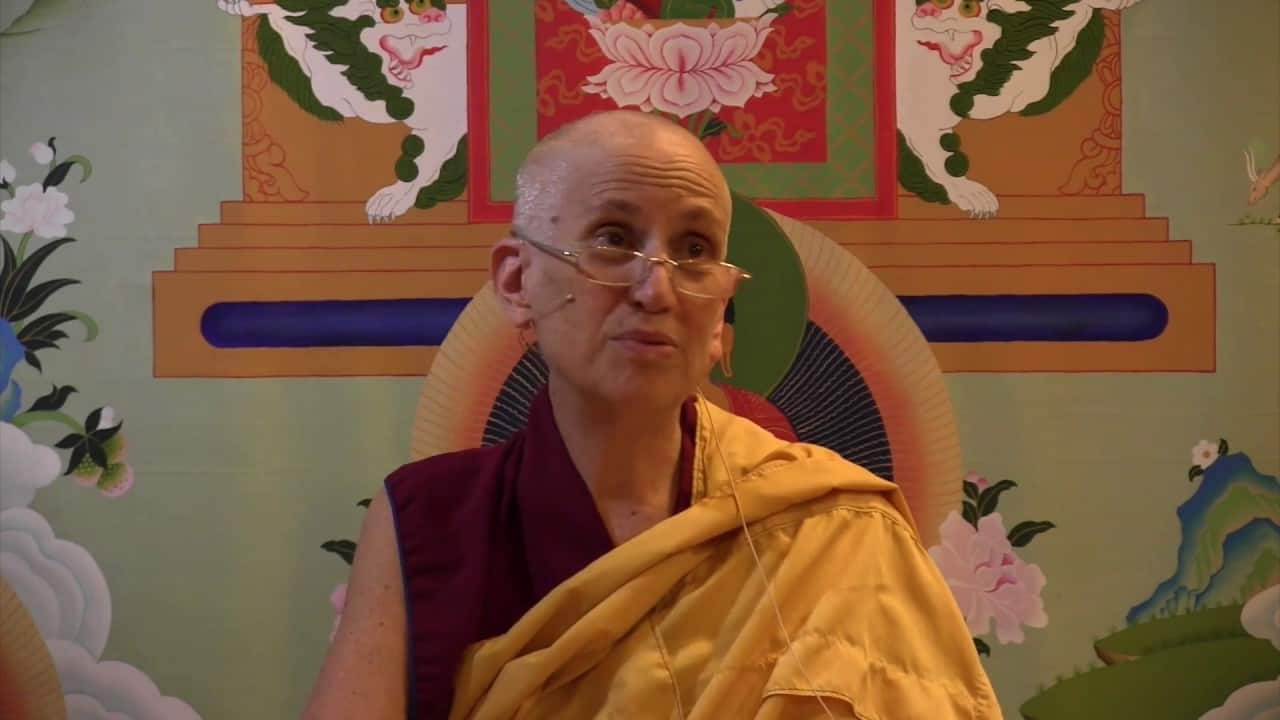Transforming adversity into joy and courage

Venerable Thubten Chodron answers a question from a student.
Question: How can we transform adversity into joy and courage, so that we don’t get overwhelmed by situations and become unhappy?
Venerable Thubten Chodron: We frequently encounter adversity in cyclic existence. When our mind is filled with afflictions, adversities come quite easily. When the mind isn’t filled with afflictions, we can be peaceful and open even when we face difficult situations. How we interpret the situation influences how we will experience it. That’s why it is so important to transform our mind.
But when we have problems, do we think of transforming our mind? Usually, we think that the situation is unfair, that others are wrong for treating us badly, and that they should change. When we blame others, we are essentially giving our power to them because we’re thinking, “My problem and my unhappiness is the fault of that person. They have to change and then I’ll be happy.” Looking at the situation this way is a dead-end because we can’t make them change. The only person we can possibly change is ourselves. Instead of either feeling sorry for ourselves or stewing in our anger, we need to change how we are viewing the situation.
For instance, my teacher Lama Yeshe told us how much he learned by being forced to flee Tibet and become a refugee. Had he remained in Tibet, he said, he would never have deeply understood the Dharma even though he had been studying it for years at Sera Monastery in Lhasa. Only when he became a refugee did he start putting the teachings into practice, and this caused his whole life to change. He began to see the internal power he had to deal with the situation. By seeing that his having to leave everything behind and go to a new country where he didn’t know anyone was a result of his karma—the actions he had done previously—he didn’t get angry at the Communist Chinese who occupied Tibet. He had more energy to do purification practices and his renunciation of cyclic existence grew. As he saw the suffering of the Tibetan refugees around him as well as the suffering of the soldiers occupying Tibet, his compassion for all sentient beings expanded.
That transformation would not have happened had he not become a refugee. I remember Lama putting his palms together and saying how much he appreciated the people who caused his difficulties. This made a strong impression on me because he was not angry at all and genuinely appreciated the people whose actions brought him problems.
So when you think of someone who makes your life difficult, put the Dharma you have learned into practice and transform your mental state. When you do, you’ll grow in the Dharma and will have increased confidence and courage to face difficulties. Your mind will be joyful. You may even be able to say “thank you” to him for giving you the opportunity to change and grow. If we want to attain Dharma realizations, we need to practice patience and master fortitude. Developing such qualities requires people who challenge us. So we have to appreciate and thank them.
There are several ways we can look at an adverse situation in order to transform it into joy and courage. If we firmly believe and understand karma—that our actions produce the corresponding results we experience—we will know that if we criticize others, inevitably others will criticize us. We created the cause for it with our anger, our judgmental, critical mind, and our tendency to blame others. Once we acknowledge that we create our own misery and whatever we experience is due to our having done something similar to someone in this or previous lives, it becomes easy to begin practicing the Dharma and transforming adversity into the path.
By harming others in the past, we indirectly harm ourselves. This doesn’t mean we deserve to suffer; we’re simply experiencing the results of our own actions. By treating others with kindness and compassion, we create the causes for our own future happiness. Understanding this, we will be more conscientious and mindful of our actions, bringing more peace in our life and influencing others in a positive way.
Venerable Thubten Chodron
Venerable Chodron emphasizes the practical application of Buddha’s teachings in our daily lives and is especially skilled at explaining them in ways easily understood and practiced by Westerners. She is well known for her warm, humorous, and lucid teachings. She was ordained as a Buddhist nun in 1977 by Kyabje Ling Rinpoche in Dharamsala, India, and in 1986 she received bhikshuni (full) ordination in Taiwan. Read her full bio.


